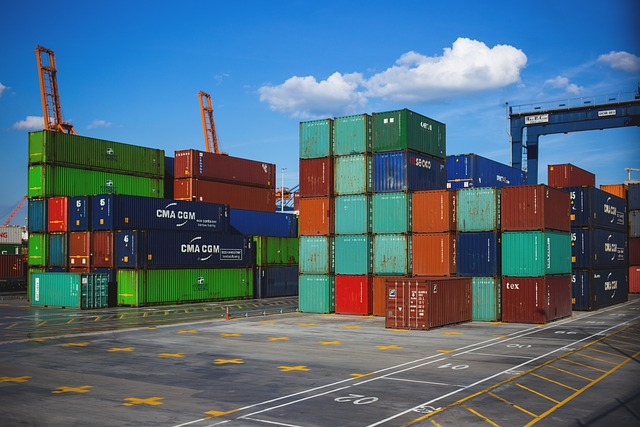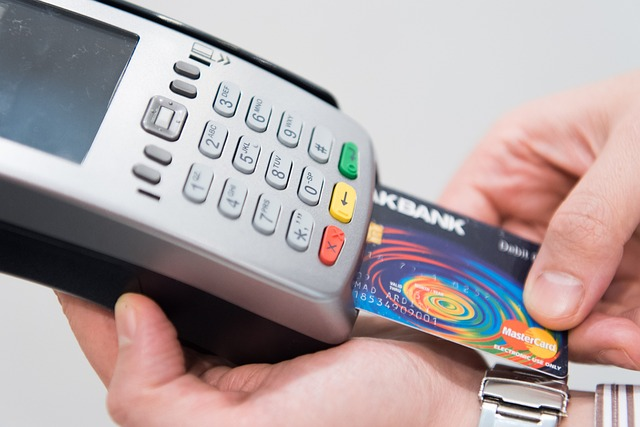What are Commercial Real Estate Loans?

A commercial property loan is a business loan used explicitly to purchase, build, or renovate a property used for business purposes. At least 51% of the property in question must be used to support the business, such as a storefront, office, warehouse, etc.
The loan amount you receive is for the cost of the property or construction project. You will secure the loan using the financed property as collateral.
In some ways, a commercial real estate loan, also called a commercial mortgage, is like a residential mortgage. You purchase the property upfront with the loan, and the lender holds a lien on the property until it’s paid off. If you default, the lender claims the property in foreclosure to recoup its losses.
Small businesses may be interested in commercial property loans for various reasons. While the cost and commitment are higher than renting, you invest in a long-term asset.
How do Commercial Real Estate Loans work?
Small business owners have several options for financing a commercial property acquisition or renovation. There are several steps in the process:
- Determine how much you need for the property or properties.
- Find the best loan option for your commercial mortgage.
- Find a commercial real estate lender.
- Ensure you qualify for the lender.
- Apply with the lender.
- If approved, accept the loan offer and get funded.
- Repay the loan per the loan agreement.
Traditional Commercial Mortgage Loans
Some commercial banks and credit unions offer mortgage loans for businesses to purchase commercial property. Like a residential mortgage, these are secured loans using the financed property as collateral.
Most small business owners need good to excellent credit and an established business history to get approved for a commercial loan. If eligible, it’s the most direct and easy-to-manage loan option. The Interest rate for this type of loan is typically between 5% and 7%.
Small Business Term Loan
Borrowers that can’t qualify for a commercial mortgage from a bank could consider a term loan. Many online lenders offer business term loans.
Term loans carry borrowing amounts between $10,000 and $5 million. Terms are typically 3-10 years, with factor rates starting at 5%.
Small Business Administration (SBA) Loans
The US Small Business Administration (SBA) runs the SBA loan program, which is often considered the gold standard of business financing. The SBA partially guarantees the loans, allowing lenders to offer higher borrowing amounts at lower interest rates and longer repayment terms.
The main SBA loan for commercial real estate is the SBA 504/CDC loan. It provides up to $5 million for commercial property with terms of up to 25 years. You can also use the SBA 7(a) loan for commercial real estate. SBA 7(a) interest rates are usually between Prime + 2.5% and Prime + 4.75%. SBA 504 loan interest rates are usually around 3%.
Bridge loans
A bridge loan is a type of short-term financing used to cover the gap until you qualify for long-term loans. It’s used mainly by real estate investors or small businesses attempting to outbid cash buyers. You’ll get a large upfront sum but must repay it quickly. You will need to refinance if you can’t repay the loan in the shortened timeframe. Bridge loan interest rates are typically between 4.2% and 13%.
Hard money loans
A hard money loan is like bridge financing, except the funds come from a private company instead of a traditional lender, like a bank, credit union, or online lender. Hard money loans also have short repayment terms. Borrowers who can’t get bridge financing from a lender are the most likely to use a hard money loan. Hard money loan interest rates are 10% to 18%.
How can my small business qualify for a Commercial Real Estate Loan?

When evaluating your loan application, lenders will look at your personal and business finances. Let’s go over the general requirements for each.
Personal Finances
Lenders typically examine your personal financial history to determine creditworthiness. Many lenders require a credit score in the 600s. If applying for an SBA loan, you’ll typically need a credit score between 650 and 700.
While your credit score gives lenders an idea of your credit, most will examine your credit history more in-depth. In particular, they will look for any foreclosures or bankruptcies in your credit history.
Another essential part of your financial picture is your debt-to-income ratio (DTI). Lenders will also examine your overall net worth.
It would be best to look at your overall assets, particularly liquid ones or those that can be easily liquidated. Lenders will go over your bank accounts and other assets.
Business Finances
Commercial real estate lenders will look at your business credit score. Several agencies report business credit scores, most ranging from 0-100. You will need a credit score of 75 or better to qualify in most cases.
Lenders will also examine your business assets and what you can offer as collateral. They will want to know if assets such as equipment, invoices, or cash reserves could pay off the loan.
Most lenders will look at your gross revenue, net operating income (NOI), and cash flow. In addition to your NOI, lenders will also calculate your debt service coverage ratio. They need to ensure you have the available cash to support loan repayment.
Lenders prefer to work with more established businesses since they have a proven track record. Most lenders will require at least two years in business, although some might accept loan requests from younger companies.
How to apply for a Commercial Real Estate Loan:
You can apply for a commercial real estate loan through our network of lenders using an SBA loan or business term loan. Follow these steps to apply.
Step 1: Ensure You Qualify
You’ll need a credit score between 650-700 and a healthy, consistent cash flow. You will also need documentation of the property you’re interested in, such as the address, property type, owner-occupancy ratio, total sale price, plans to renovate, and list of revenue-generating tenants (if any).
Step 2: Gather Your Documents
Be prepared to provide:
- Driver’s License.
- Business license or certificate.
- Voided Business Check (for business bank account information).
- Bank Statements.
- Credit Report/Statement of Personal Credit History.
- Business Tax Returns.
- Credit Card Processing Statements.
- Personal Tax Returns – 3 Years.
- Business Tax Returns – 3 Years.
- Business Plan (Not in all cases).
- Personal Financial Statement.
- List of Real Estate Owned or Business Leases if applicable.
- Debt Schedule/Loan/Rent/Lease Documentation
- Deeds/Title/Ownership documentation for any collateral/Security.
- Current Profit & Loss Statements and Balance Sheet Year-to-Date.
- A/R and A/P Reports.
- United Capital Source 1 Page Application.
Step 3: Fill Out the Application
You can begin the application process by calling us or filling out our one-page online application. Either way, you’ll be asked to enter the information from the previous section along with your desired funding amount.
Step 4: Speak to a Representative
Once you apply, a representative will reach out to you to explain the repayment structure, rates, and terms of your available options. This way, you won’t have to worry about any surprises or hidden fees during repayment.
Step 5: Receive Approval
Commercial Real Estate Loans through our network generally take 3-5 weeks to process. Once approved and your file is closed, funds should appear in your bank account in a few business days.
If and when you’re approved for a business term loan, funds should appear in your bank account in 1-2 business days.
What are the advantages of Commercial Real Estate Loans?
Commercial loans for real estate allow small businesses to purchase buildings or land needed for business operations. The property becomes an asset that adds to the company’s overall equity, especially as you pay off the loan.
Owning the property where you do business also gives you more freedom to renovate and customize the location. You can add whatever signage, equipment, machinery, or facilities you need without having to get approval from a rental company that owns the lease.
While you must use 51% of the property for your own business, you can lease out the remaining portion for extra revenue. For example, if you purchased an office building, you must use most of it for your business, but you can rent the remaining office space to other companies.
There are a wide range of lenders and loan options available for a commercial mortgage. You can get a low-cost SBA loan or shorten the process with an online lender offering quick application and funding time.
What are the disadvantages of Commercial Real Estate Loans?
All loans involve risk, and commercial loans carry high borrowing amounts. Defaulting on a loan could put both your business and personal finances at risk.
Most lenders and commercial real estate loans require a significant down payment. In general, you should expect to put down 25% of the purchase price. It might be possible to put down as little as 10% for SBA loans. You might need to put up additional collateral and sign a personal guarantee as well.
While some online lenders offer quick applications with minimal documentation, most commercial loans will require a lengthy application process. SBA loans, in particular, are notorious for complex applications, exhaustive documentation, and lengthy approval and funding times.
Most lenders will require a good to excellent credit score, at least two years in business, and high annual revenue. It can be difficult for some small businesses to meet those requirements.
Unless you get an SBA loan, most commercial real estate loans carry terms no longer than 5 to 10 years, but the amortization is usually over 25 years. This means that while your monthly payment is lower, you will usually have a balloon payment due at the end of the loan for the remainder of the balance.
Commercial real estate loan pros & cons

Pros:
- The business owns the property adding to its overall assets.
- You can use the equity in a property for further financing.
- Gives you more control over what to do with your commercial property.
- Many loan and lender options are available.
- Potential to lease out up to 49% of the property for extra income.
Cons:
- Increased risk of taking out large loan amounts.
- Requires a 25% down payment in most cases.
- Might require additional collateral and a personal guarantee.
- Most lenders have high qualification requirements.
- SBA real estate loans take a long time to approve & fund.
- Non-SBA loans only have terms of 5-10 years, usually resulting in a large balloon payment at the end of the loan.
Frequently Asked Questions
Here are the most common questions about commercial real estate loans.
What constitutes commercial property?
Commercial properties include buildings or land used for business purposes. The land or property must be zoned for commercial use in most states and municipalities.
Examples of commercial properties include, but are not limited to:
- Storefronts and shops.
- Service centers and mechanical garages.
- Malls and strip malls.
- Warehouses.
- Factories and refineries.
- Office buildings and corporate centers.
- Industrial complexes.
How long are the terms for a Commercial Real Estate Loan?
Most commercial real estate loans carry terms between 3-10 years. SBA commercial real estate loans can go up to 25-year terms.
Can I get a Commercial Real Estate Loan with bad credit?
Having bad credit (below 600) can make obtaining a commercial real estate loan difficult, but it’s not impossible. There are bad credit business loan options to consider. You should be aware that many of these loan structures carry higher interest rates and fees. One way to think of bad credit business loans is as bridge financing until you can afford a more beneficial loan or refinance the loan with a lower rate.
Commercial Real Estate Loan – Final Thoughts

Small business owners have many options for lenders and loans to purchase commercial real estate. If you can’t qualify for a traditional commercial loan from a bank, you can consider SBA loans, term loans, bridge financing, or hard money loans.
The main thing to consider is whether purchasing the property is the right move for your business and justifies the financing cost. You must also ensure your business has the cash flow to support repayments.
Contact us if you have any questions or are ready to apply for a small business loan. Our loan executives can help you determine the right financing package for your commercial real estate needs.











